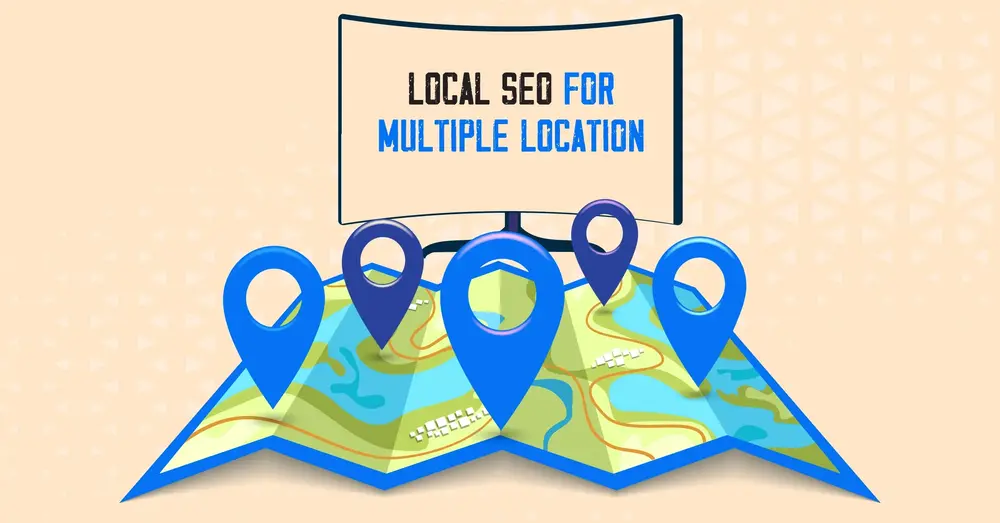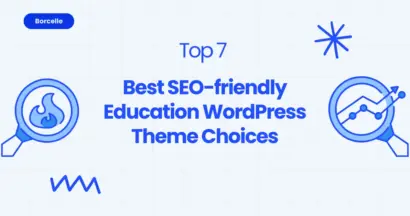Local SEO, often overshadowed by the broad strategies of global SEO, holds a unique position in the digital marketing landscape with its laser-like focus on geographical relevance for larger brands.
This specialized approach distinguishes Local SEO as a crucial strategy for businesses aiming to establish a strong presence in specific local markets.
Businesses with multiple locations must compete on a local level with the local competitors. As Bill Hogsett, the CEO of Seota Digital Marketing preaches to his clients, Treat every one of your locations like it is a single store fighting for market share.
Single Location SEO has the advantage in the marketplace by catering to businesses with a single physical location or a primary service area, focusing on hyper-localized tactics to attract nearby customers; these small businesses depend on guerilla marketing and going after your customers.
On the other hand, Multi-Location Local SEO expands on the principles the single store uses – aggressive, hyper-local SEO with the benefit of the better branding and operational efficiencies larger chains tend to bring to the table.
This variation requires a nuanced approach to ensure consistency in brand messaging while also accommodating the unique characteristics of each local market.
Delving deeper, each form of Local SEO involves specific strategies, from keyword optimization and localized content creation to managing online business listings and gathering local reviews.
The following sections will dig into these strategies, offering insights into their implementation, challenges, and the advantages they provide in enhancing a business’s visibility and engagement with local audiences.
The article aims to provide a comprehensive understanding of Local SEO’s pivotal role in connecting businesses with their local communities, highlighting its significance in the broader spectrum of digital marketing.
What is Local SEO?

Local SEO is a strategic approach aimed at optimizing a business’s online presence to attract more customers from relevant local searches, usually on Google. This form of search engine optimization focuses on enhancing a business’s visibility in local search results generated when potential customers search for products or services near them.
Key components include optimizing the business’s Google My Business listing, ensuring accurate and consistent name, address, and phone number (NAP) information across the web, and creating content that resonates with a local audience.
By targeting geographically related keywords and leveraging local directories (citations), businesses can improve their search rankings in specific areas, making it easier for local customers to find them.
This targeted optimization not only increases online visibility but also drives foot traffic to physical locations, making it an essential strategy for any business looking to dominate its local market.
What is Multi-Location Local SEO?

Multi-Location Local SEO extends the principles of Local SEO to cater to businesses operating in multiple geographical areas. This approach involves tailoring SEO strategies to address the unique needs and search behaviors of customers in each specific location.
It involves optimizing individual listings for each location, creating location-specific content, and ensuring that name, address, and phone number (NAP) information is accurate and consistent across all business locations. It also leverages the larger brand to drive authority.
By focusing on localized keyword targeting and leveraging local citations and backlinks, businesses can enhance their visibility in local search results for each area they serve.
This not only improves online discovery across diverse regions but also supports a cohesive brand presence, making Multi-Location Local SEO a critical strategy for businesses looking to maximize their reach and relevance in multiple local markets.
You can check out SEO Tips for Business with Multiple Locations.
Why is Local SEO important for businesses?

Local SEO is paramount for businesses aiming to establish a robust online presence within their geographical area. It significantly increases online visibility, ensuring that businesses appear prominently in local search results when potential customers search for related products or services.
This heightened visibility directly translates to attracting more local customers, driving online and foot traffic to the business.
Additionally, a strong local SEO strategy enhances a business’s credibility and trust among its local community.
By providing accurate and relevant information, responding to reviews, and engaging with the local audience, businesses can build a reputable online presence. This trust is crucial, as consumers often rely on local search results to make informed decisions about where to spend their money.
In essence, Local SEO not only connects businesses with their immediate market but also fosters a relationship of trust and reliability with their customer base, making it an indispensable tool in the digital marketing arsenal.
Increases online visibility
Local SEO boosts a business’s visibility in search engine results for queries specific to a local area. This is achieved through optimizing for geographically related keywords and ensuring the business appears in local listings and maps.
As a result, businesses become more visible to those searching for their products or services locally, significantly increasing the likelihood of attracting potential customers.
Attracts local customers
By optimizing for local search, businesses can more effectively reach their target audience within their immediate geographical area.
Local SEO strategies ensure that businesses appear in search results for individuals actively seeking out their services or products in the vicinity. This targeted approach not only drives more relevant traffic to their website but also increases foot traffic to physical locations.
Enhances credibility and trust
A well-executed Local SEO strategy helps build a business’s reputation within its local community.
Consistent NAP information across online platforms, positive reviews, and active engagement with customers contribute to a positive online presence. This, in turn, fosters trust among local customers, who are more likely to choose a business that appears reliable and well-regarded in local search results.
Why do businesses with multiple locations need a different SEO strategy?
Businesses with multiple locations face unique challenges that require an SEO strategy tailored to the location and well-optimized to take advantage of the Brand.
Unlike single-location businesses, multi-location entities must navigate different local competitions, where each location encounters unique competitors.
This diversity requires a nuanced approach to keyword targeting and content creation, as search intents can differ by location, reflecting local markets’ specific needs and interests.
Most multiple-location SEO strategies fail because the business or franchise fails to allocate a budget for SEO for each location. This approach is a market share killer.
The importance of diverse geographical signals is amplified in multi-location SEO. Each location must establish strong local signals to rank effectively in its respective area, necessitating location-specific pages, local keyword optimization, and consistent NAP information across all listings.
This complexity makes a one-size-fits-all SEO strategy ineffective, highlighting the need for a customized approach that considers the distinct characteristics and competitive landscape of each location.
Different local competitions
Businesses operating in multiple locations must account for the different competitive landscapes each site faces. A strategy effective in one area may not work in another due to varying local competitors, making it crucial to understand the local competitive environment.
Each location faces unique competitors
The uniqueness of each location’s competitive environment necessitates a customized approach to SEO.
Recognizing and strategizing against local competitors is crucial for visibility and success, highlighting the need for location-specific competitive analysis.
Varied local search intents
Understanding that search intents can vary significantly from one location to another is essential. Tailoring content and keywords to match these specific intents ensures relevance and engagement, making it vital to align SEO efforts with the unique interests of local audiences.
Search intents can differ by location
The diversity in search intents across locations underscores the need for a nuanced content strategy. What appeals to customers in one area might not resonate with those in another, emphasizing the importance of customizing content to meet local needs.
Diverse geographical signals
Optimizing for local SEO requires a focus on diverse geographical signals. Ensuring each location is accurately represented in local listings and maps is vital for visibility, stressing the importance of precise geographical data for each location.
Importance of location-specific signals for ranking
The ranking of a business in local search results heavily depends on the strength of location-specific signals.
Tailoring these signals to each location can significantly enhance a business’s overall SEO performance, highlighting the critical role of localized SEO practices in achieving optimal search visibility.
How does Local SEO strategy differ from Multi-Location Local SEO strategy?
The core distinction between Local SEO and Multi-Location Local SEO strategies lies in their geographical targeting and customization approach.
Local SEO focuses on optimizing a single location or service area, with strategies centered around enhancing visibility in local search results through specific, location-based keywords, and localized content creation.
This approach is highly effective for businesses with a singular physical location or a primary service area they wish to dominate in search rankings.
Conversely, location-local SEO expands upon these principles to accommodate the complexities of managing SEO for multiple locations.
This involves creating separate, optimized pages for each location, ensuring consistent NAP information across all listings, and tailoring content to reflect the unique attributes and search intents of each local market.
The strategy requires a more granular level of customization, including location-specific keyword targeting and the cultivation of local backlinks, to effectively signal to search engines the relevance of each business location to its respective local audience.
In essence, while both strategies aim to improve local search visibility, location-local SEO demands a more intricate and tailored approach to address the diverse needs and competitive landscapes of multiple locations, ensuring each site achieves optimal online presence and customer engagement.
Keyword targeting
Effective Local SEO hinges on keyword targeting, where strategies are developed to include terms and phrases that potential customers are likely to use when searching for local services or products. This ensures a business’s online presence is aligned with the actual search behavior of its target audience.
Tailoring keywords to specific local markets
For Multi-Location Local SEO, tailoring keywords to match the search habits of specific local markets is crucial. Each location may have unique terminologies or phrases commonly used by its residents, making it essential to adapt keyword strategies accordingly.
Localized content creation
Localized content creation involves crafting content that addresses the interests, needs, and cultural nuances of a local audience. This strategy not only improves engagement but also signals to search engines the relevance of a business to specific local searches.
Creating content that resonates with local audiences
Developing content that resonates with local audiences requires a deep understanding of local trends, events, and preferences. This approach helps in establishing a strong connection with the community, fostering trust and loyalty.
Citation and NAP consistency
Maintaining citation and NAP consistency across all online platforms ensures that a business is easily and accurately found by potential customers. Inconsistencies can lead to confusion and diminish the effectiveness of local SEO efforts.
Ensuring name, address, and phone number are uniform
For businesses with multiple locations, ensuring uniformity in the name, address, and phone number details across listings is pivotal. This consistency helps avoid any discrepancies that could negatively impact local search rankings.
Local link building
Local link building focuses on acquiring backlinks from reputable local sources, such as community websites, local news outlets, and other businesses. These links enhance a site’s local search visibility and credibility.
Acquiring backlinks from local sources
Acquiring backlinks from local sources is a targeted effort to strengthen a business’s local SEO profile. These backlinks act as endorsements, improving the business’s standing in local search results and driving more local traffic to its website.
What are the challenges of Multi-Location Local SEO?
Multi-Location Local SEO presents several challenges that stem from managing the online presence of multiple business locations.
One of the primary hurdles is managing multiple Google My Business listings, which requires keeping information accurate and updated for each location. This task is compounded by the need to ensure location-specific content is relevant and tailored to meet the distinct needs of each local market.
Additionally, maintaining NAP information consistency across various platforms and listings for all locations can be daunting.
Uniformity in business details is crucial for search engine rankings and user trust, but achieving this across multiple locations demands meticulous attention to detail and coordination. These challenges highlight the complexity of executing a successful Multi-Location Local SEO strategy, necessitating a comprehensive and organized approach to manage effectively.
Managing multiple Google My Business listings
Effectively managing multiple Google My Business listings is crucial for businesses with several locations. This involves regularly updating each listing to ensure it reflects accurate hours, services, and contact information, which is key to maintaining visibility and relevance in local search results.
Keeping information accurate and updated for each location
The challenge of keeping information accurate and updated for each location cannot be overstated. This requires a diligent approach to monitoring and updating each site’s details as changes occur, ensuring potential customers receive the correct information.
Ensuring location-specific content is relevant
Ensuring location-specific content is relevant involves creating and updating content that addresses the unique characteristics and interests of each location’s audience. Tailored content enhances engagement and supports the local relevance of each business location.
Content must meet the specific needs of each local market
Developing content that meets the specific needs of each local market is essential. This means understanding and addressing the local community’s interests, questions, and preferences, thereby fostering a stronger connection with the audience.
Keeping NAP information consistent across locations
Keeping NAP information consistent across locations is a foundational aspect of Multi-Location Local SEO. Inconsistencies in name, address, and phone number information can confuse customers and negatively impact search rankings.
Uniformity in business details across all platforms
Achieving uniformity in business details across all platforms is vital for clarity and SEO effectiveness. This uniformity ensures that regardless of how or where a customer finds the business online, they encounter consistent and accurate information, reinforcing trust and brand integrity.
How can businesses effectively implement Multi-Location Local SEO?
Effectively implementing Multi-Location Local SEO requires a strategic and organized approach to address the unique challenges of managing multiple business locations online.
Centralized management of local listings is fundamental, enabling businesses to maintain accuracy and consistency in their NAP information across all locations. Utilizing tools for managing listings in bulk can streamline this process, ensuring that updates and changes are efficiently applied across the board.
Additionally, tailored content for each location is crucial for engaging the specific audiences of each market. Developing unique content that addresses local needs, preferences, and search intents can significantly enhance local relevance and customer engagement.
Moreover, regular monitoring and updating of NAP information across the web is essential to prevent discrepancies that could harm search rankings.
Routine checks and updates help maintain the integrity of the business’s online presence, ensuring that customers always find accurate and reliable information. By adopting these practices, businesses can effectively implement Multi-Location Local SEO, optimizing their online visibility and engagement across all their locations.
Centralized management of local listings
Centralized management of local listings ensures that all location-specific information is accurate and consistent. This approach simplifies updating details across multiple listings, making maintaining a cohesive online presence easier.
Using tools for managing listings in bulk
Leveraging tools for managing listings in bulk can significantly streamline updating and maintaining accurate information for each location. These tools help businesses efficiently manage their listings, saving time and reducing the risk of errors.
Tailored content for each location
Engaging local audiences requires creating tailored content for each location. This involves understanding the unique characteristics and preferences of each market and developing content that specifically addresses these aspects.
Developing unique content that addresses local needs
Developing unique content that addresses local needs involves a deep dive into what makes each location and its audience unique. This strategy not only boosts engagement but also enhances the relevance of a business in local search results.
Regular monitoring and updating of NAP information across the web
Regularly monitoring and updating NAP (Name, Address, Phone number) information across the web are crucial for ensuring that all listings are accurate and consistent. This practice helps avoid confusion among customers and maintains the integrity of a business’s local SEO efforts.
Routine checks to ensure accuracy and consistency
Performing routine checks to ensure the accuracy and consistency of business information across all platforms is key to a successful Multi-Location Local SEO strategy. These checks help in identifying and correcting any discrepancies, thereby improving a business’s local search visibility and credibility.
Contact US | ThimPress:
Website: https://thimpress.com/
Fanpage: https://www.facebook.com/ThimPress
YouTube: https://www.youtube.com/c/ThimPressDesign
Twitter (X): https://x.com/thimpress_com



